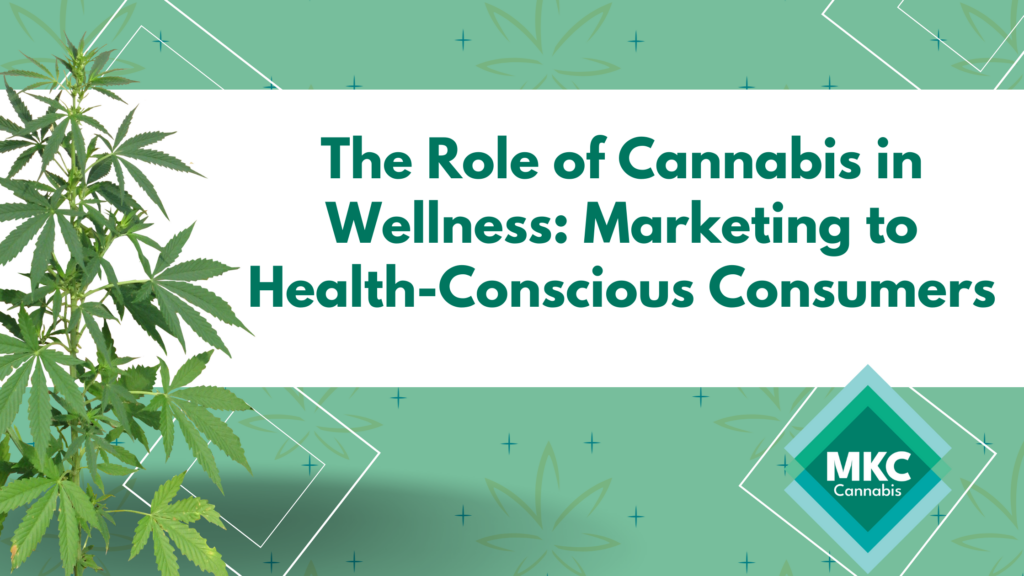As the cannabis industry continues to grow, an increasing number of consumers are turning to cannabis for wellness and self-care rather than just recreation. From stress relief and sleep support to pain management and fitness recovery, cannabis is becoming a staple in holistic health routines.
For cannabis brands looking to reach health-conscious consumers, effective marketing requires education, transparency, and alignment with wellness trends. In this blog, we’ll explore how businesses can position cannabis as a wellness product and appeal to the growing demographic of health-focused buyers.
1. Understanding the Health-Conscious Cannabis Consumer
Health-conscious cannabis consumers prioritize well-being and natural alternatives over conventional pharmaceuticals or synthetic supplements. They are more likely to seek cannabis for:
🌿 Stress & Anxiety Relief – CBD and THC products help manage daily stress and promote relaxation.
💤 Sleep Support – Many consumers use cannabis to improve sleep quality and combat insomnia.
💪 Pain Management & Inflammation – Cannabis offers a natural alternative to over-the-counter pain relievers.
🧘 Mind-Body Balance – Wellness consumers integrate cannabis into yoga, meditation, and mindfulness practices.
🏋️ Athletic Recovery – Some athletes use cannabis for muscle relaxation and post-workout recovery.
Example: A wellness-focused dispensary may highlight CBD topicals and tinctures for pain relief, targeting consumers who prefer holistic solutions over pharmaceuticals.
2. Positioning Cannabis as a Wellness Product
Unlike traditional cannabis branding that emphasizes potency or recreational effects, wellness marketing focuses on functional benefits.
How to Market Cannabis for Wellness
✅ Use Health-Centered Messaging – Focus on relaxation, recovery, and balance rather than just “getting high.”
✅ Highlight Natural & Organic Ingredients – Consumers prefer clean, pesticide-free cannabis grown with sustainable practices.
✅ Align with Self-Care Trends – Position cannabis as part of a wellness routine, similar to herbal teas or aromatherapy.
✅ Leverage Medical & Scientific Research – Reference CBD and THC studies that support cannabis use for wellness.
Example: A brand selling CBD-infused beverages could market them as a health-conscious alternative to alcohol, promoting relaxation without a hangover.
3. Best Cannabis Products for Wellness Consumers
Wellness consumers prefer mild, functional cannabis products that fit into their daily routines.
Popular Cannabis Wellness Products
🌿 CBD Oils & Tinctures – For anxiety relief, sleep support, and overall well-being.
🧴 Topicals & Balms – For muscle recovery, joint pain, and skincare.
💊 Microdosed Edibles – Low-THC and CBD-infused gummies or capsules for mild, sustained effects.
🍵 Cannabis-Infused Teas & Beverages – Alternatives to coffee, wine, and energy drinks.
🛏 Sleep-Specific Formulas – Cannabis products infused with melatonin or calming herbs.
Example: A dispensary could curate a “Wellness Bundle” featuring CBD tinctures, sleep gummies, and recovery topicals for health-conscious customers.
4. Wellness-Focused Branding Strategies
Branding plays a major role in attracting wellness-conscious cannabis consumers.
Key Elements of a Strong Wellness Cannabis Brand
🌱 Clean, Minimalist Design – Packaging should resemble high-end wellness products rather than traditional cannabis branding.
📢 Educational Content – Blogs, infographics, and video content that explain how cannabis supports wellness.
👩⚕️ Expert Endorsements – Collaborate with holistic health practitioners, nutritionists, or yoga instructors.
🧘 Community Engagement – Host wellness workshops, meditation sessions, or fitness partnerships.
Example: A cannabis skincare brand can use simple, organic packaging and partner with estheticians to reinforce its health-focused identity.
5. Digital Marketing & Social Media Strategies
Since cannabis advertising is restricted on platforms like Facebook and Google, brands must focus on organic engagement and content marketing.
Effective Digital Marketing Tactics
📝 SEO-Optimized Wellness Blogs – Educate consumers on cannabis for sleep, anxiety, and fitness recovery.
📲 Influencer Collaborations – Partner with wellness influencers, yoga instructors, and personal trainers.
🎥 Short-Form Video Content – Use Instagram Reels and TikTok to share cannabis wellness tips.
📧 Email & SMS Campaigns – Send wellness-focused promotions and educational newsletters.
Example: A brand selling CBD-infused teas could partner with tea sommeliers and holistic wellness bloggers to create engaging content.
6. Building Trust with Transparency & Education
Wellness consumers prioritize safety, transparency, and ingredient quality. Brands must educate customers and provide clear product details.
Ways to Build Consumer Trust
✔ Provide Lab-Tested Results – Show proof of third-party testing for purity and potency.
✔ Use Clear Dosage Guidelines – Educate customers on THC/CBD ratios, effects, and proper dosing.
✔ Emphasize Sustainability & Ethical Sourcing – Wellness consumers value eco-friendly, fair-trade, and organic practices.
✔ Address Safety Concerns – Debunk cannabis myths and discuss proper usage and potential side effects.
Example: A dispensary can create a “Beginner’s Guide to Cannabis Wellness” that helps first-time users choose the right products.
7. Wellness Partnerships & Community Building
Connecting with established health and wellness brands can help expand credibility and audience reach.
Wellness Partnership Ideas
🤝 Collaborate with Gyms & Yoga Studios – Offer CBD samples at fitness classes or co-host wellness events.
🛍 Stock Products in Health Stores – Get CBD oils, topicals, or edibles placed in local organic markets or spas.
📚 Host Educational Events – Organize “Cannabis & Mindfulness” workshops or live Q&A sessions with wellness experts.
🎤 Sponsor Wellness Festivals – Get featured at holistic health expos, wellness retreats, or farmer’s markets.
Example: A CBD recovery brand could partner with a CrossFit gym to offer post-workout recovery products for athletes.
Shaping the Future of Cannabis Wellness
As more consumers explore cannabis for health and wellness, brands that position themselves within the self-care space will gain a competitive edge. By focusing on education, transparency, and community engagement, cannabis businesses can successfully market to health-conscious buyers and grow a loyal customer base.
📌 Want to build a wellness-focused cannabis brand? Explore MKC Cannabis’s Brand Guide for expert strategies, or check out our portfolio to see how we help brands thrive.







